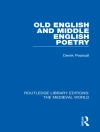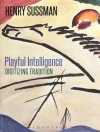The fourteenth-century Siege of Jerusalem has been called by Ralph Hanna the chocolate-covered tarantula of the alliterative movement for its apparent anti-Semitism and is, as Livingston notes in his introduction, simply difficult for twenty-first-century readers to like. The poem, which describes the destruction of the Second Temple by Roman forces in AD 70, is graphic in detail and unpleasant in its relish of the suffering of the Jews. But as Livingston points out, Like the gritty violence of Alliterative Morte Arthure, the gore in Siege is perhaps best read as a grim awareness of the terrible realities of war, not as a bloodthirsty and berserk cry for further bloodshed. The poem chronicles a historical war, and it is this historical quality that must stand out: the poem not only has resonances of the bloodshed that battle inevitably brings, but it also is, in a very literal sense, history. This is to say, the war is over. The vengeance of Jesus has been accomplished. The Siege-poet’s answer to the social-political-religious question of whether there is such a thing as a just war is that there was one: Titus and Vespasian’s vengeance for the death of Christ. . . . Further efforts to avenge Christ were unnecessary. . . . That the poem is a call to action and to crusade, then, seems to be a claim that is far less sustainable than its opposite: a call to peace and to remembrance.
Michael Livingston
Siege of Jerusalem [PDF ebook]
Siege of Jerusalem [PDF ebook]
ซื้อ eBook เล่มนี้และรับฟรีอีก 1 เล่ม!
ภาษา อังกฤษ ● รูป PDF ● หน้า 154 ● ISBN 9781580444309 ● บรรณาธิการ Michael Livingston ● สำนักพิมพ์ Medieval Institute Publications ● การตีพิมพ์ 2005 ● ที่สามารถดาวน์โหลดได้ 3 ครั้ง ● เงินตรา EUR ● ID 7941003 ● ป้องกันการคัดลอก Adobe DRM
ต้องใช้เครื่องอ่านหนังสืออิเล็กทรอนิกส์ที่มีความสามารถ DRM












